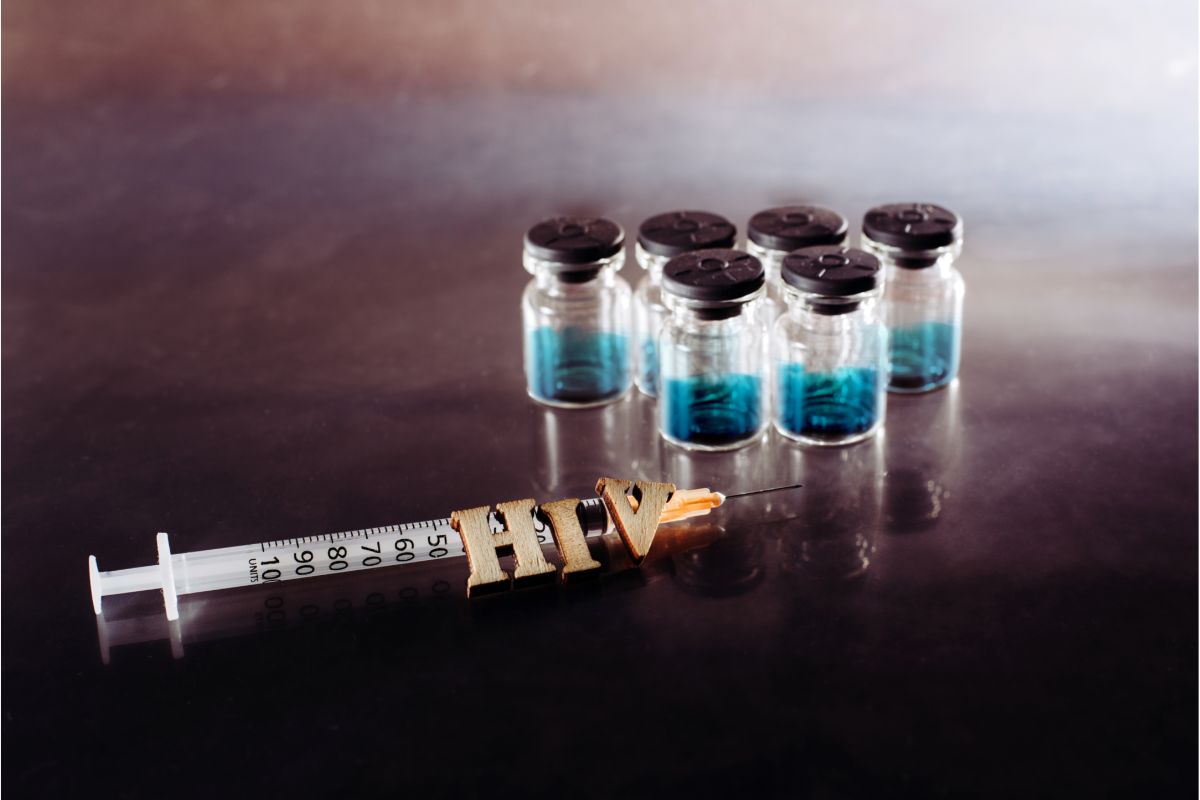There are many ways to protect yourself from getting infected with HIV. You should always practice safe sex and never share needles.
If you think you’re at risk, then you should go to your doctor and ask them about testing.

In 2016, nearly 1 million Americans were living with HIV/AIDS, and approximately 90 percent of them had an undetectable viral load.1 However, there are still many barriers preventing people living with HIV/AIDS from accessing health care services.
For example, there are currently about 2.2 million people who are unaware that they are infected with HIV. People who are not aware that they are infected with the virus may not seek medical attention when they become ill, and therefore do not receive treatment.
Additionally, people who are unaware that HIV is present in their body may also fail to get tested because they feel healthy or think that they cannot transmit the infection.
Antiretroviral Therapy (ART), also referred to as antiretroviraltherapy (ART) or anti-retroviral therapy (ART), is a medical treatment for people living with HIV/AIDS. It is designed to slow down the replication of HIV in the body.
The treatment consists of a combination of different medications taken daily.
A person with HIV should start taking medication as soon as possible after diagnosis. Once started, treatment needs to continue indefinitely.
The goal of treatment is to keep the virus under control so that it does not cause any health problems.
But how exactly do the treatments work?
Treatments
HIV infects white blood cells called CD4+ T cells. These infected cells are then transported throughout the body via the bloodstream.
Once inside the body, the virus multiplies and kills the cell. As the number of infected cells decreases, the level of HIV in the blood also declines.
As we’ve mentioned Antiretroviral therapy (ART) drugs slow down the production of new viruses and reduce the levels of existing ones.
ART works best when started early during infection. When treatment is initiated later, the levels of HIV in the blood may increase again because the virus becomes resistant to the medication.HIV medications help reduce the amount of virus in the body.
When To Start Treatment?
People with AIDS should start taking HIV medicines immediately after testing positive. It’s also important to start taking HIV medications if they know they were infected before official diagnosis.
These medications will help them avoid developing AIDS-related illnesses and reduce the risk of transmitting the virus to others.
Which Medicines To Take?
HIV medicines are grouped into 7 different drug classifications. These classifications are determined by how well each medication fights HIV.
There are several types of HIV (see also ‘What Type Of Virus Is HIV?‘) medications available, depending on your specific situation.
Each type of HIV medication is effective at treating HIV, but may cause side effects or interact with other drugs you’re taking. Your doctor will help you choose the best HIV treatment regimen for you.

Things To Remember
HIV medications keep people living with HIV healthy and prevent HIV transmission.
People taking HIV medications every day and exactly as directed reduce the risk of developing drug resistance. However, some HIV medicines can cause side-effects.
Most side effects from antiretroviral drugs are manageable, but a small number can be serious. Side effects from HIV meds can be reduced if you take them correctly, at the right time, and at the recommended dose.
Newer HIV medicines cause fewer side-effects than older ones. Over time, HIV treatments continue to get safer and easier to tolerate.HIV medications can also cause side effects when taken together.
You should talk to your doctor about any concerns you may have regarding possible drug interactions.
Your health care provider will help you choose a combination of HIV drugs that works best for you.
Short Term Side Effects
If you experience any side effects while taking HIV meds, talk to your doctor right away. Tell him about any conditions before you got HIV such as infections, stress, depression, diet and any other drugs you take.
Work closely with your doctor to figure everything out and make sure you understand all the possible side effects of each medication you take.
If you find you are struggling to tolerate it, your doctor may adjust your dose or switch you to another medication.
It’s crucial you take your HIV meds every day until your doctor says otherwise. Don’t stop taking them without talking to your doctor first.
Stopping suddenly could cause the virus to become resistant to the drugs. It also increases the risk of other health problems.
Long Term Side Effects
There are some side effects that can be long term and cause more extensive issues:
Lipodystrophy is a condition where your body changes the way it makes, processes, and stores fat. It can also lead to weight gain and loss.
Changing medication can help with this problem. Changing drugs or doses can help if the side effect doesn’t get better.What other long term side eeffcts can occur?
High cholesterol or triglycerides. These can raise your risks for Mitochondrial problems like high blood sugar.
If you have liver damage (hepatotoxiciy) you might be at higher risk for other problems. Check with your doctor before starting any exercise program.
Bone problems – You could be more prone to broken bones, especially as time goes on. Try weight bearing exercises like walking or weight lifting.
You may need to take extra medications for osteoporosis. Calcium and Vitamin D supplements may help.
This has been linked with the newer class of HIV meds (integrase inhibitors) so it’s best to take precaustions.
Mitochondrial toxicities. Mitochondria are tiny structures inside every cell that produce energy through metabolism. Some HIV medicines can interfere with mitochondrial function, causing problems throughout your system.
These effects may lead to organ damage, muscle weakness, liver disease, nerve damage, and other symptoms. Your doctor may adjust your treatment if you experience any of these side effects.
Lactic acidosis. This is a buildup of waste and is rare, but it can cause serious health issues.
You may see symptoms like shortness of breath, nausea, vomiting, abdominal pain, and confusion. You’ll need medical care right away if you get any of these sysmtoms.
In Summary
Thanks to modern medicine, HIV is more treatable than times past, With patience and time people can find the right treatment that allows them to live a long and happy life.
- Understanding Male Reproductive Health: A Complete Guide - February 2, 2025
- Simple Healthy Skin Habits for Radiant Skin - December 6, 2024
- Unlocking the Connection Between Nutrition and Mental Health - December 3, 2024



![Prenatal HIV Transmission What Is Perinatal Hiv And When Does It Occur? [Explained]](https://alphanutrition.com/wp-content/uploads/2022/08/What-Is-Perinatal-Hiv-And-When-Does-It-Occur-Explained-150x150.jpg)




